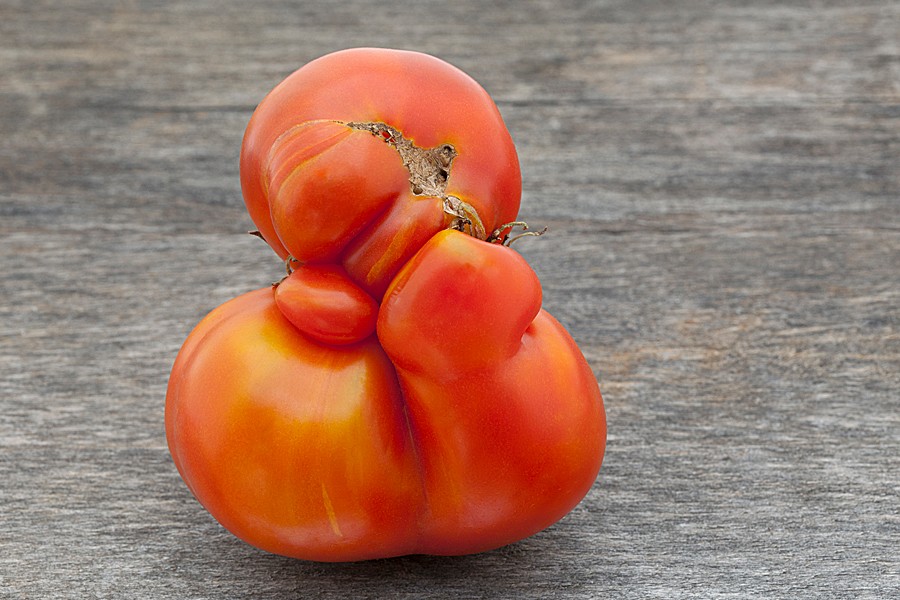Throughout October, members of the JHU community were invited to recycle their Styrofoam, eat ugly apples, hear from former Vice President Al Gore, and participate in other creative and compelling activities during Campus Sustainability Month. Overall, the Office of Sustainability promoted 11 events on its Sustainability Month calendar that reached across divisions to engage students, faculty, and staff with a message of environmental justice.
"Events and programs provide our campus community a direct way to explore complex issues and connect with others who want to effect change in their personal lives, at Johns Hopkins, and on a broader scale," says Ashley Pennington, program manager for the Johns Hopkins University Office of Sustainability. "We had a range of partners that included university departments, campus environmental groups, and community organizations so that diverse topics and opportunities could be highlighted throughout the month."
Among the activities, a roundtable discussion about environmental justice was spearheaded over brunch with Homewood students one Sunday morning by the Office of Sustainability's events intern, Alexandra Walinskas, a sophomore in the School of Arts and Sciences. Attendees discussed current issues such as trash incineration in Baltimore and water poisoning in Flint, Michigan, as well as how the Hopkins community can contribute to environmental justice in Baltimore and beyond. "Environmentalism has historically been seen as a movement that focuses on nature," Walinskas says, "but in reality, it is a movement centered around human rights."
Some other highlights of the month:
Facilities, IT, and Hopkins LIFE hosted a Styrofoam and e-waste recycling drive at the schools of Medicine and Public Health, preventing those commonly wasted items from ending up in the Baltimore incinerator and contributing to air pollution.
On World Food Day, Oct. 16, passersby in Homewood's Levering courtyard sampled "ugly" produce provided by Hungry Harvest, Homewood Recycling, CHEW, and Real Food Hopkins that would have been needlessly tossed due to high cosmetic standards. The consensus was clear: An "ugly" apple on a beautiful fall day is just as delicious.
Student Leadership and Involvement screened former Vice President Al Gore's documentary An Inconvenient Sequel: Truth to Power, followed by a live webcast Q&A with Gore.
Green Team members partnered with Blue Water Baltimore for a volunteer outing in Library Square with McElderry Park residents, and Johns Hopkins Facilities and Real Estate staff teamed up with Civic Works' Community Lot Team on the beginnings of a new community green space in Peace Park.
Hopkins Feminists and Students for Environmental Action educated Homewood students about tools and methods that women who menstruate can use to lower environmental impact, save money, and provide personal health benefits.
Beyond Campus Sustainability Month, there are always things everyone can do to engage, learn, and contribute to a more sustainable Johns Hopkins University. Here's a sampling:
Choose a green caterer for your next meeting or event. Homewood Recycling's Preferred Green Caterers Directory was recently updated and now boasts 25 caterers who follow sustainable practices.
Attend an educational and inspiring event. Next up, a screening of Awake, a Dream From Standing Rock, co-hosted by the offices of Sustainability and Multicultural Affairs. Awake is a documentary profiling the Standing Rock Sioux reservation in North Dakota, where a fight for equitable access to clean water is taking place. A proposed crude oil pipeline would cut through the reservation and is viewed as a severe threat to the tribe's resources and way of life. This film and the following discussion are intended to help attendees connect the dots between environmental justice and social justice.
Get more eco-smart tips and news. Connect with the Office of Sustainability on Facebook or Instagram, visit the office's website, subscribe to the Green Team listserv, or request the monthly eNewsletter.
Encourage students to become interns. The Office of Sustainability hires several Homewood undergraduates each semester to plan events, develop educational resources and marketing materials, create sustainability programs, conduct research, integrate sustainability into operations, and assist in office efforts to effect systems-level change across the university. Applications for spring 2018 internships will open in November.
Posted in News+Info, Happenings








